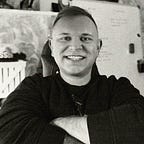You Know Way Less Than You Think — Here’s Proof
The more I learn, the more I realize how much I don’t know. — Albert Einstein
We’ve all fallen victim to the Dunning-Kruger effect. Here’s a good example of how it works in practice:
We’re sitting down at a family dinner, in front of me the one cousin no one has seen since the last family get-together. He opens his mouth and very confidently starts talking about a topic he clearly knows very little about. You look down at your phone, with one swift google search you realize all he’s saying is completely wrong, yet he doesn’t seem to know it, and neither does anyone else at the table. He is so confident in himself that everyone else believes him, and you start to wonder, does he even know what he’s saying? This is the Dunning-Kruger effect.
People who know very little about a subject tend to think they know more than they actually do. Because they just don’t know how much they don’t know.
I know that I know nothing— Socrates
The Dunning-Kruger effect works in both ways. People with low ability at a task overestimate their own knowledge, while people with high ability at a task underestimate their own ability.
The Dunning-Kruger effect is named after the two scientists who first discovered this phenomenon. David Dunning & Justin Kruger. In 1999 they did a scientific research titled “Unskilled and unaware of it”
They tested a group of people on logic, humor and grammar. In the first experiment 65 participants were asked to read jokes people would find funny. The people who thought they were excellent judges of humor were the worst on the test. Same thing happened for the logic and grammar tests. The people scoring the lowest were the most confident going into the test, while the ones who scored the most overestimated how everyone else did.
When we know very little about a subject we tend to overestimate how much we actually know. As we learn more about it, we realize how much more there is to learn. Hence why the chart displayed in the beginning of this article is a very precise assessment of ones knowledge about any given subject.
The only true wisdom is knowing you know nothing — Socrates
A little knowledge is a dangerous thing. All engineers in a company were ones asked to rate their work and determine how well they were doing. 42% of the engineers believed they in the top 5% of the company.
In another scenario, professors on a university were asked to do the same, rate whether they did average, below average or above average. The results are actually funny, because 95% of the professors thought they did above average work, which is mathematically impossible. If it were true that 94% of them did above average, then the bar is much higher, so all of them become either average or below average. You would think professors whos job it is to rate peoples knowledge would give a more accurate self assessment, but the reality is everyone is a victim of the Dunning-Kruger effect.
If you’re very confident in a given topic, pause for a minute.
Question your views and opinions because there might be new information to disprove what you hold so dear to your heart. Take criticism and consider it carefully, if you do, you might just stumble upon new information to help you grow and learn more.
As said before, the Dunning-Kruger effect does work in both ways, because people who truly know a lot about a subject tend to think everyone else knows just as much if not more, which most of the time isn’t true.
Always ask questions.
Always be curious.
I’m not a genius, I’m just curious — Albert Einstein
Thanks for reading.
